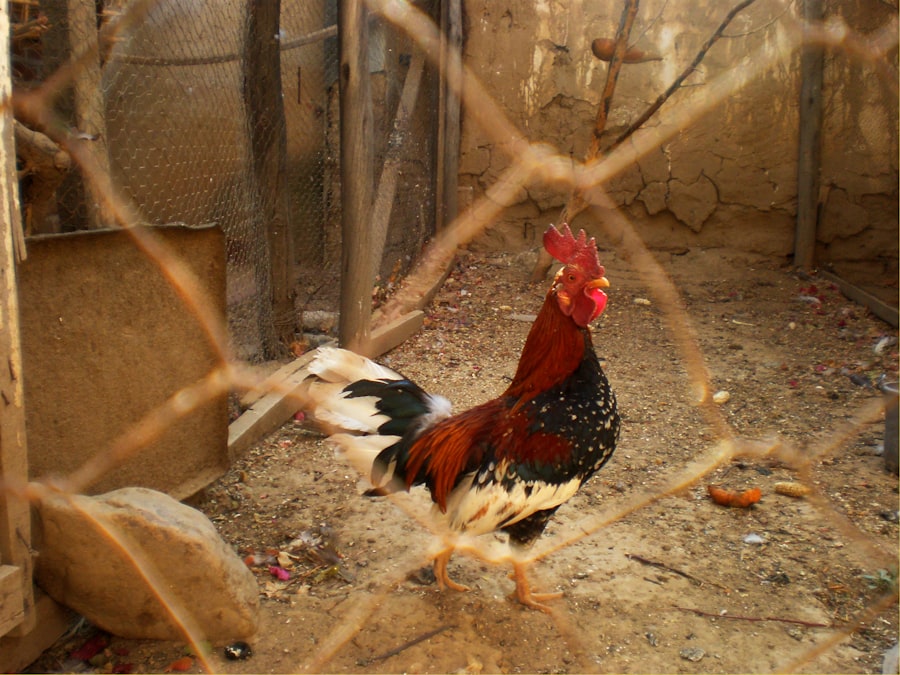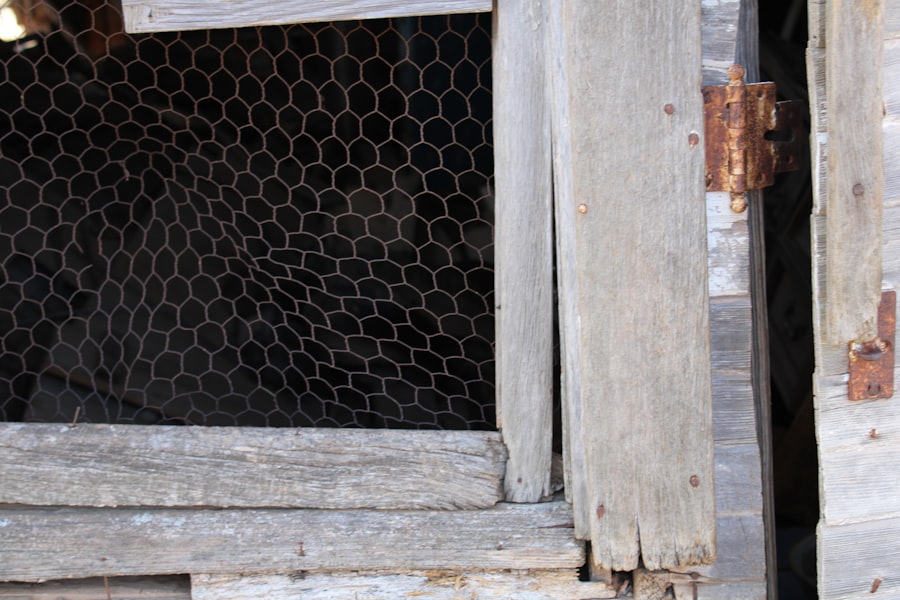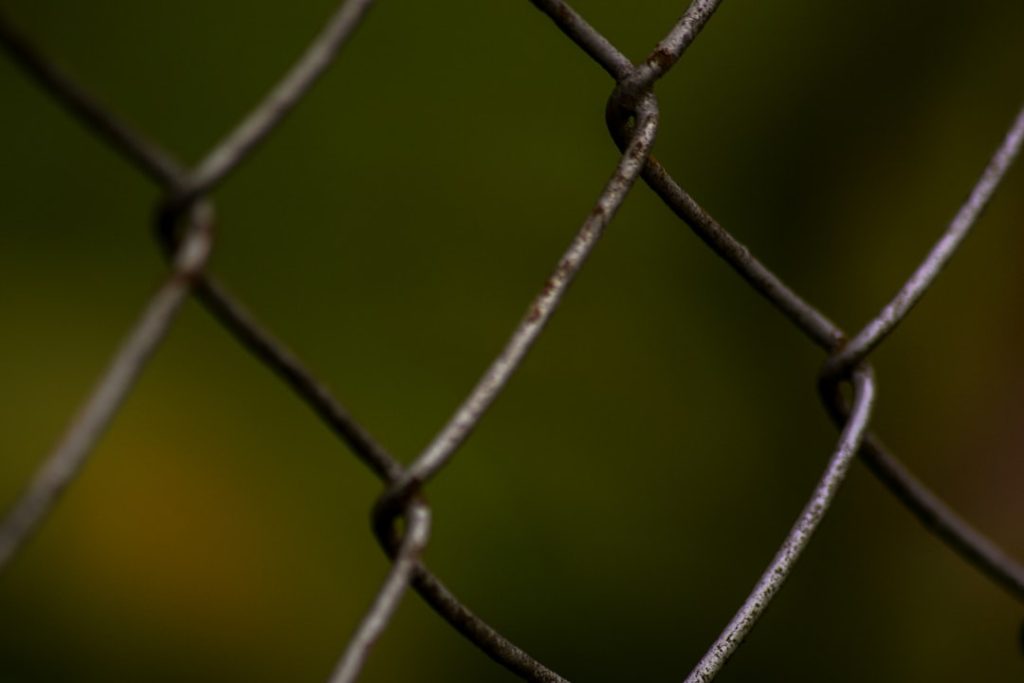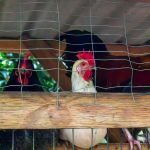Chickens possess intricate instinctual behaviors shaped by evolutionary processes over centuries. These behaviors are essential to consider when creating an appropriate environment for a flock. As social animals, chickens form hierarchies within their groups, establishing a pecking order with a designated leader.
Adequate space is necessary to allow each chicken to establish its territory and prevent overcrowding, which can lead to aggressive behavior and stress. Foraging is a crucial instinct for chickens, who spend significant time searching for insects, seeds, and other food sources. Providing a varied diet and outdoor access is important for their well-being.
Chickens also have a natural roosting instinct, making perches in their coop essential for their comfort and security. As prey animals, chickens are constantly vigilant for potential threats. They instinctively seek secure and hidden spaces for protection.
A well-designed coop should offer safety from predators such as foxes, raccoons, and birds of prey. Understanding these natural instincts is crucial for creating a nurturing and secure environment that meets the needs of a chicken flock.
Table of Contents
- 1 Creating a secure and comfortable coop for your chickens
- 2 Installing proper fencing to keep chickens within the yard
- 3 Providing adequate food and water to keep chickens satisfied
- 4 Offering enriching activities and toys to keep chickens entertained
- 5 Regularly monitoring and maintaining the yard to prevent escape routes
- 6 Seeking professional advice and assistance if necessary
- 7 FAQs
Key Takeaways
- Chickens have instinctual behaviors such as scratching, dust bathing, and roosting that should be understood and accommodated in their coop design.
- A secure and comfortable coop should include proper ventilation, nesting boxes, and roosting bars to ensure the well-being of the chickens.
- Installing proper fencing, including buried wire to prevent digging, is essential to keep chickens within the yard and protect them from predators.
- Providing a balanced diet, fresh water, and appropriate feeding stations is crucial for the health and satisfaction of the chickens.
- Enriching activities and toys such as perches, hanging treats, and dust bathing areas can keep chickens entertained and reduce stress.
- Regular monitoring and maintenance of the yard, including checking for potential escape routes and repairing any damages, is important for the safety of the chickens.
- Seeking professional advice and assistance, especially when dealing with complex coop designs or predator management, can ensure the well-being of the chickens and the success of the operation.
Creating a secure and comfortable coop for your chickens
Space and Ventilation
When building a coop, it’s essential to provide enough space for each chicken to establish their territory and avoid overcrowding. This helps prevent aggression and stress within the flock. Additionally, the coop should be well-ventilated to ensure good air quality and prevent the buildup of ammonia from chicken droppings.
Predator-Proofing and Security
The coop should be predator-proof, with sturdy walls and a secure roof to keep out potential threats. This may include burying wire mesh around the perimeter of the coop to prevent predators from digging underneath. All doors and windows should be securely latched to prevent unwanted intruders from gaining access.
Comfort and Amenities
In addition to security, the coop should also provide comfort for your chickens. This includes providing nesting boxes for them to lay their eggs, as well as perches for them to roost on at night. The coop should also be kept clean and free of pests such as mites and lice, which can cause discomfort and stress for your flock.
By creating a secure and comfortable coop, you can ensure that your chickens are happy and healthy.
Installing proper fencing to keep chickens within the yard

Proper fencing is essential for keeping your chickens within the yard and preventing them from wandering into areas where they could be at risk from predators or traffic. When it comes to fencing, there are several options to consider, including traditional wire mesh fencing, electric fencing, or even chicken wire. The type of fencing you choose will depend on your specific needs and the size of your yard.
Regardless of the type of fencing you choose, it’s important to ensure that it is tall enough to prevent your chickens from flying over it. Chickens are surprisingly good fliers and can easily clear a fence that is too low. Additionally, the fencing should be buried into the ground to prevent predators from digging underneath it.
This will help keep your chickens safe and secure within the yard. It’s also important to regularly inspect the fencing for any signs of wear or damage, as even a small hole or gap can provide an opportunity for your chickens to escape. Regular maintenance of the fencing will help ensure that your chickens remain safely contained within the yard.
Providing adequate food and water to keep chickens satisfied
Providing adequate food and water is essential for keeping your chickens satisfied and healthy. Chickens have a natural instinct to forage for food, so it’s important to provide them with a varied diet that includes grains, seeds, fruits, and vegetables. Additionally, they require access to grit or small stones to aid in digestion, as well as calcium supplements to support egg production.
In addition to providing a balanced diet, it’s important to ensure that your chickens have access to fresh water at all times. This is especially crucial during hot weather when they may be at risk of dehydration. It’s important to regularly clean and refill their water containers to ensure that they have access to clean water.
It’s also important to consider the placement of their food and water containers within the yard. Placing them in shaded areas will help keep the water cool and prevent it from becoming too warm in the sun. Additionally, raising their food containers off the ground can help prevent contamination from dirt and droppings.
Offering enriching activities and toys to keep chickens entertained
Chickens are intelligent animals that benefit from enrichment activities to keep them entertained and engaged. Providing them with toys such as hanging mirrors or treat balls can help stimulate their natural curiosity and provide mental stimulation. Additionally, providing them with access to areas where they can scratch and peck at the ground will help satisfy their instinctual behaviors.
Another way to keep chickens entertained is by providing them with access to fresh grass or other vegetation where they can forage for insects and seeds. This will not only provide them with mental stimulation but also help supplement their diet with natural treats. It’s also important to provide opportunities for your chickens to engage in natural behaviors such as dust bathing, which helps keep their feathers clean and free of pests.
Providing them with a designated area filled with sand or dust will encourage this natural behavior and keep them entertained.
Regularly monitoring and maintaining the yard to prevent escape routes

Inspecting the Perimeter Fencing
Regular monitoring and maintenance of the yard are essential for preventing escape routes for your chickens. This includes regularly inspecting the perimeter fencing for any signs of wear or damage that could provide an opportunity for your chickens to escape.
Maintaining a Safe Environment
Additionally, it’s important to regularly trim back any overgrown vegetation that could provide cover for predators or potential escape routes for your flock. It’s also important to regularly inspect any structures within the yard, such as sheds or outbuildings, for potential entry points that could allow your chickens to escape. Ensuring that all doors and windows are securely latched will help prevent unwanted access for your flock.
Identifying and Removing Hazards
Regularly monitoring the yard will also help you identify any potential hazards or risks that could pose a threat to your chickens’ safety. This may include removing any toxic plants or chemicals that could be harmful if ingested by your flock.
Seeking professional advice and assistance if necessary
If you’re unsure about any aspect of caring for your chickens or creating a safe environment for them, don’t hesitate to seek professional advice and assistance. There are many resources available, including local agricultural extension offices, poultry clubs, and online forums where you can seek advice from experienced chicken keepers. Additionally, if you encounter any issues with predators or other threats to your flock, it’s important to seek professional assistance to address the problem effectively.
This may include consulting with wildlife experts or hiring a professional pest control service to help protect your flock from potential harm. By seeking professional advice and assistance when necessary, you can ensure that you are providing the best possible care for your chickens and creating a safe and secure environment for them to thrive. In conclusion, understanding the instinctual behavior of chickens is crucial for creating a safe and nurturing environment for your flock.
By providing a secure and comfortable coop, proper fencing, adequate food and water, enriching activities, regular monitoring and maintenance of the yard, and seeking professional advice when necessary, you can ensure that your chickens are happy, healthy, and safe. Taking these steps will not only benefit your flock but also provide you with peace of mind knowing that you are providing the best possible care for your feathered friends.
If you’re looking for tips on how to keep chickens from leaving your yard, you might also be interested in this article on the Poultry Wizard website about the Hannah Montana Chicken Coop. This article provides valuable information on how to create a safe and secure environment for your chickens, which can help prevent them from wandering off. Check it out here.
FAQs
What are some effective ways to keep chickens from leaving your yard?
Some effective ways to keep chickens from leaving your yard include building a secure fence around the perimeter, providing adequate food and water within the yard, and training the chickens to recognize the yard as their home.
What type of fencing is best for keeping chickens in the yard?
A sturdy and secure fencing material such as chicken wire or hardware cloth is best for keeping chickens in the yard. The fence should be buried at least 6 inches into the ground to prevent chickens from digging underneath it.
How can I train my chickens to stay in the yard?
You can train your chickens to stay in the yard by regularly feeding them within the yard, providing shelter and nesting boxes, and spending time with them to establish a bond. Additionally, using treats and positive reinforcement can help reinforce the idea that the yard is their home.
What should I do if my chickens keep escaping despite my efforts?
If your chickens keep escaping despite your efforts, you may need to reassess the security of your fencing and make any necessary repairs or improvements. Additionally, consider providing more enrichment and stimulation within the yard to discourage the chickens from wanting to leave.
Meet Walter, the feathered-friend fanatic of Florida! Nestled in the sunshine state, Walter struts through life with his feathered companions, clucking his way to happiness. With a coop that’s fancier than a five-star hotel, he’s the Don Juan of the chicken world. When he’s not teaching his hens to do the cha-cha, you’ll find him in a heated debate with his prized rooster, Sir Clucks-a-Lot. Walter’s poultry passion is no yolk; he’s the sunny-side-up guy you never knew you needed in your flock of friends!







